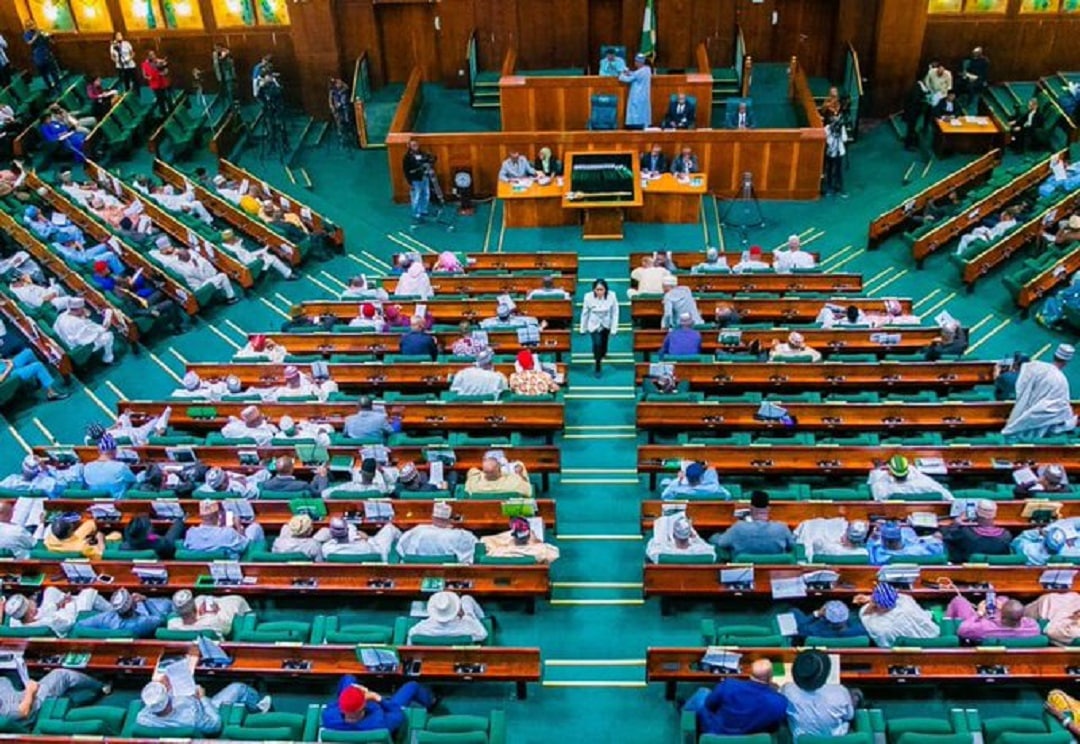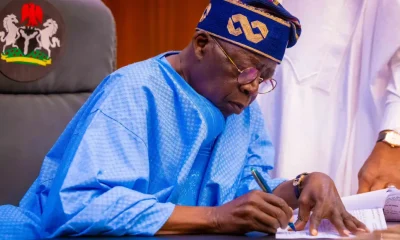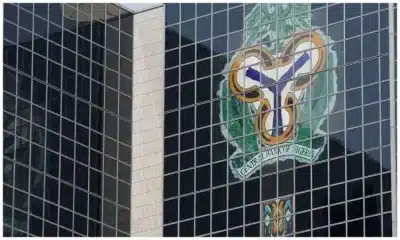Nigeria News
Reps Investigates Missing Crude, Contaminated Fuel

The Joint Committee of the House of Representatives has launched a forensic investigation into allegations surrounding the alleged importation of contaminated Premium Motor Spirit (PMS) into Nigeria.
This investigation, focusing on the challenges in the downstream and midstream petroleum sectors, was announced by Committee Chairman, Ikenga Ugochinyere at the panel’s formal inauguration in Abuja on Monday.
The committee aims to address several issues, including the non-availability of crude oil for domestic refineries, disruptions in distribution, and favouritism in the pro forma invoice regime.
Briefing newsmen at the event, Ugochinyere said, “The committee will conduct a legislative forensic investigation into the presence of middlemen in crude trading, indiscriminate issuance of licences and alleged unavailability of international standard laboratories to check adulterated products.”
The panel will also investigate the influx of contaminated fuel into the country and allegations regarding the non-domestication of profits from crude marketing sales in local banks, abuse of the PFI regime, and the importation of products already produced in Nigeria.
In an effort to ascertain fuel quality, the committee plans to visit petrol stations nationwide to collect product samples for laboratory testing.
The joint committee’s mandate follows the adoption of a motion on July 9, 2024, addressing the “Urgent need to carry out a legislative forensic investigation into the challenges affecting the downstream and midstream petroleum sectors in Nigeria and other related matters to find out a lasting solution to all challenges,” affecting the petroleum industry.
Following the adoption of this motion, the House mandated the Committees on Petroleum Resources Midstream and Downstream to conduct a thorough legislative forensic investigation into several critical issues. These include the resurgence of fuel queues, high PMS costs, unavailability of fuel for domestic refineries, distribution disruptions, unfair subsidization, racketeering, and favoritism in the Pro Forma Invoice System.
Ugochinyere emphasized that the committee had officially commenced a comprehensive forensic legislative investigation into various critical issues threatening the petroleum industry’s stability and trust.
“We are addressing allegations concerning the importation of substandard petroleum products and the non-availability of crude oil to domestic refineries, which has raised serious concerns about the quality and safety of fuel in our market,” Ugochinyere stated.
The committee will also scrutinize the integrity of the testing processes for petroleum products in Nigeria, focusing on the capacity and credibility of testing labs used by stakeholders in the downstream and midstream value chains.
The investigation will extend to the “indiscriminate issuance of licenses and importation of refined petroleum products, allegations of the return of PMS price intervention, unavailability of products to marketers from NNPC Retail, delays in refinery rehabilitation, and activities at petrol depots.”
Additionally, the committee will probe the presence of middlemen in crude trading, the issuance of licenses, the alleged lack of international standard laboratories to check for adulterated products, the influx of contaminated products, the non-domestication of profits from crude marketing sales in local banks, and the abuse of the PFI regime.
Given these issues, Ugochinyere stated, “The joint committee resolved that all parties, including Dangote Refinery, other refining companies, NMDPRA, marketers, and relevant stakeholders, should cease further allegations and counter-allegations pending the investigation’s conclusion.”
Letters of invitation will be sent to key stakeholders, regulatory bodies, the State Oil Company, petroleum product refining companies, IPMAN, PETROAN, independent oil producers, international oil companies, importers, marketers, depot owners, and other stakeholders.












